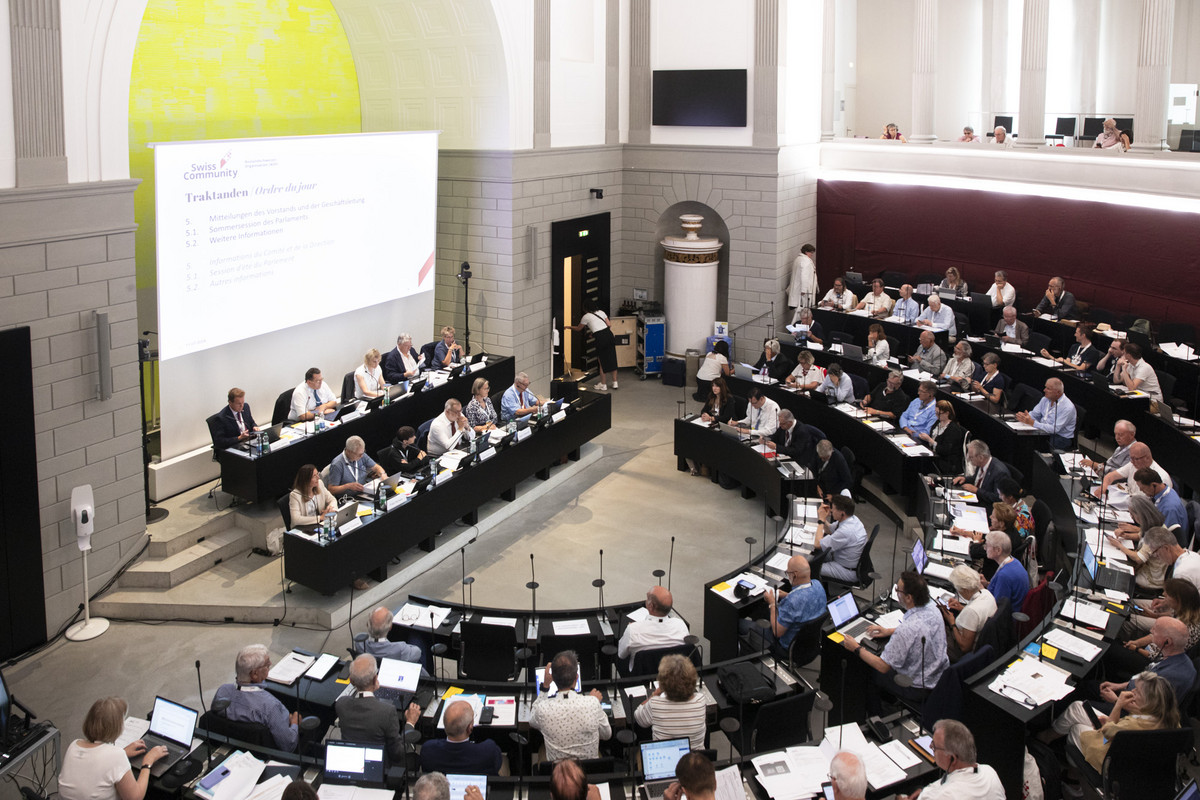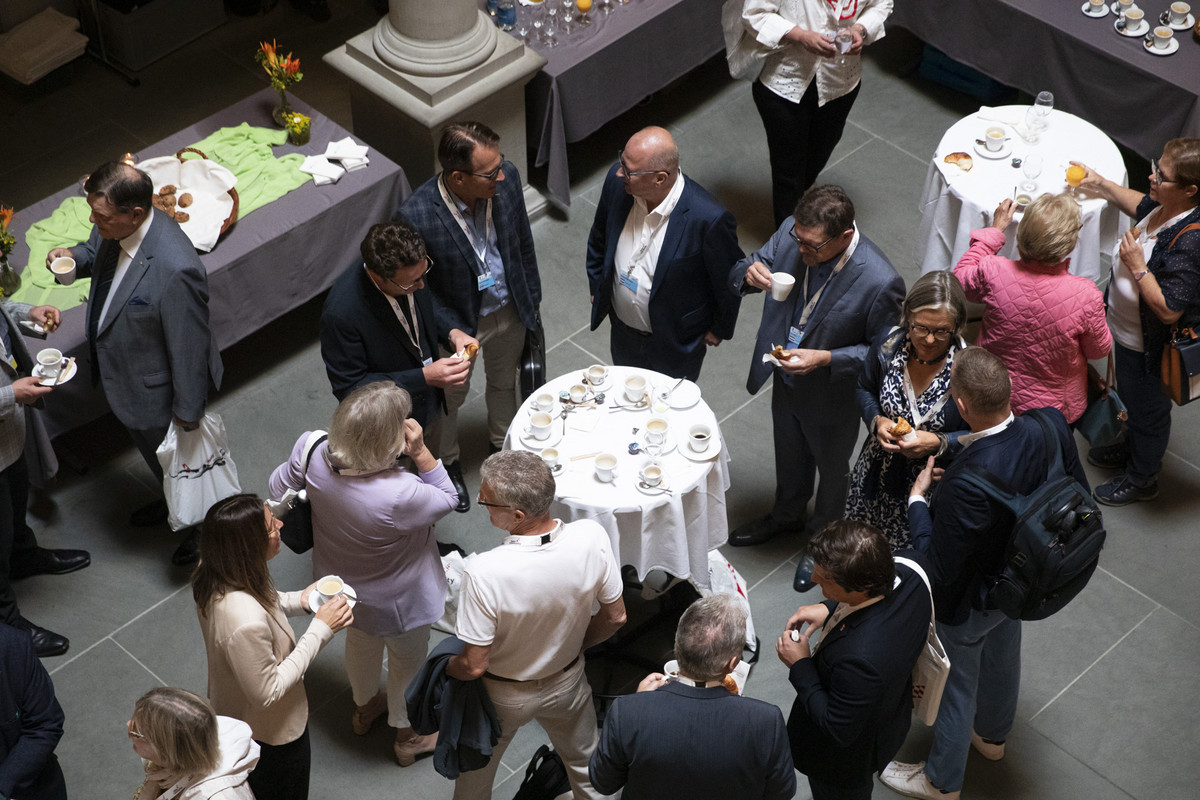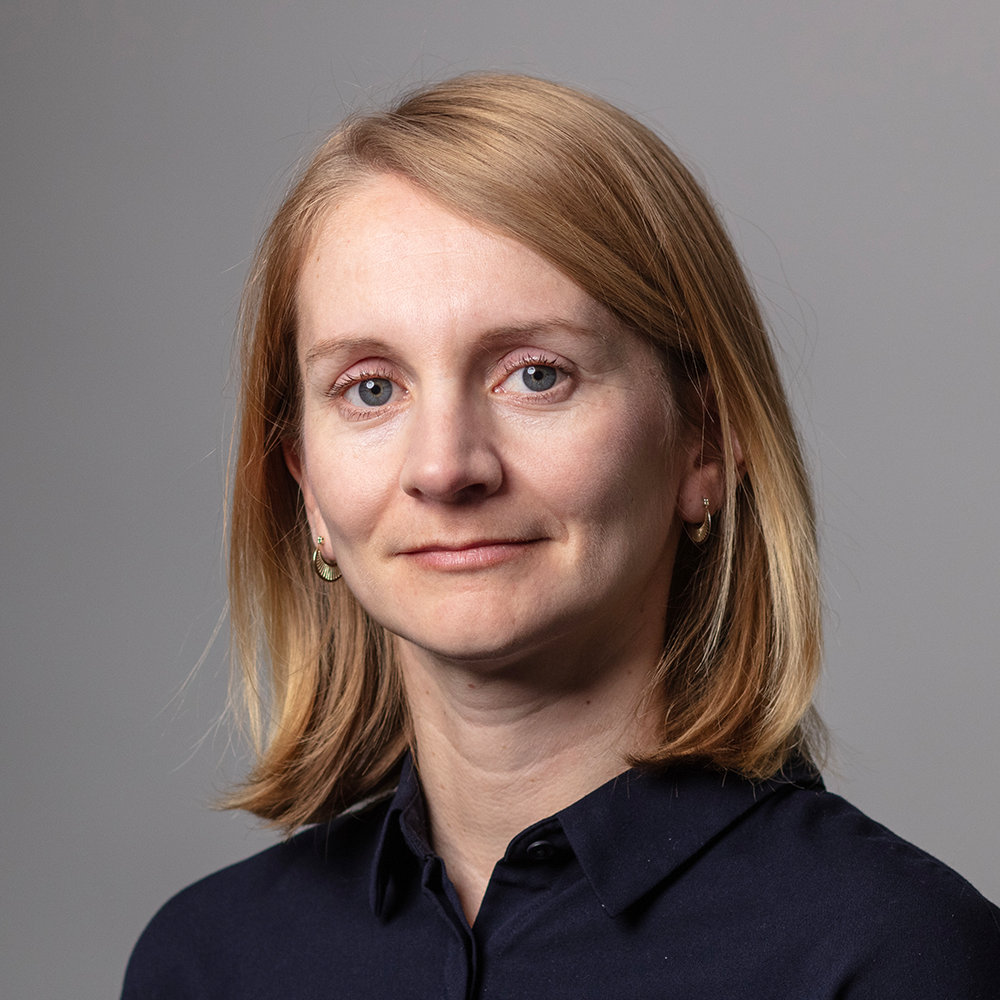
The Council of the Swiss Abroad says yes to more democratic elections

The delegates have approved a project for more direct elections. However, new electoral constituencies spark discussion, as does the Board's decision to hold the Congress only every four years.
“It’s the elephant in the room,” says working group member Andreas Feller-Ryf about the project he is presenting to the delegates of the Council of the Swiss Abroad (CSA). Along with a group of younger members, he want a more democratic and direct election of the body that represents the Swiss Abroad from all around the world.
It is an ambitious project. Until now, the CSA has been chosen indirectly: the members of associations elect their country delegates to the body.
Feller-Ryf addresses the issue of Swiss clubs and associations directly; it is the second elephant in the room. These are dwindling and there are fears of a loss of power within the clubs as a result of a democratic election. But Feller-Ryf also sees opportunities: “They are part of the direct election process,” he says.
“We represent Switzerland abroad, but we are not a reflection of the democratic system that we are so proud of in Switzerland,” he adds.
The working group that wants to establish a new electoral system “has made great progress”, says Filippo Lombardi, President of the Organisation of the Swiss Abroad (OSA). Results have indeed been achieved at some levels. There is a voting tool, developed at the Bern University of Applied Sciences.
This means less work for the organisations abroad but they still play an important role in the elections. “We need them to find candidates,” says Feller-Ryf, as well as to coordinate the election so that the candidates in a country do not all come from the same area, which would also not be a democratic election.
Candidates for the CSA will continue to be selected locally in the future, but every Swiss citizen registered at a consulate will one day be invited to vote.
– Watch our “Let’s Talk” episode on the Council of the Swiss Abroad here:
There is also a timetable: The new system will be piloted in over twelve countries for the next legislature, from 2025, including Canada, the USA, Peru, Germany, Spain, Portugal and Australia.
The fact that a pilot project was planned and approved was in itself a revolution. But then the working group gathered the facts and reached a critical mass: the numerous countries that it had persuaded to join meant that 44 seats can be expected to be filled by direct elections. With 120 foreign delegates in the CSA, this will practically amount to a system overhaul.
To ensure that the distribution of countries and regions is representative, the constituencies have been redefined. This is also a small revolution and led to discussions at the meeting. This is because the constituencies are based on the number of Swiss citizens living abroad in the regions. This means that not every country has a guaranteed seat on the CSA.
Venezuela, for example, will no longer have its own delegates. The Baltic states will now form a constituency with Russia, which caused incomprehension among several delegates given the current political situation. Visibly affected by debate on the issue, Lombardi ended the discussion on an emotional note: “Swiss Abroad are not the enemies of other Swiss Abroad.”
The CSA approved the new distribution of seats with 75% votes in favour. The project will now continue apace, and the electoral organisations in the countries that will seek and nominate the candidates will be determined by the end of August.
Congress will no longer be held annually
While direct elections were the revolution from below, the other revolution came from the top. It was virtually decreed by the Board: The Congress of the Swiss Abroad will no longer to take place every year!
The Executive Board had worked out this plan in such detail that the Council could only sign off on it. Instead of taking place in July like it did this year, the Congress will once again be held in August, but only every four years, i.e. once per legislative period.
Until recently, the Congress was the emblematic event for the Swiss abroad. Once a year, hundreds of them came together for a weekend in August. A member of Federal Council would attend and the event carried weight.
But the glamour has faded. “When was the last Congress where we felt a lot of enthusiasm?” asked Lombardi rhetorically. “It was the 2022 congress in Lugano, which took place after a two-year break due to the Covid-19 pandemic,” he said. Lombardi was clear about the future: “Fewer Congresses, but more intensive.”
Fewer participants and less money
Lombardi says that registrations for the congress have been falling since 2009. Only 130 people were present on the second day of the Congress, mostly delegates and their partners

The drop in the number of registrations is accompanied by a decrease in the financial resources available for organising the Congress. “The financial support from Swisslos and Lotterie Romande has fallen from CHF60,000 to CHF10,000,” says Lombardi. The OSA could not bear the risk of a deficit of CHF50,000 per year. Support from sponsors has also declined.
The Board’s decision does not have unanimous support. For parliamentarian Elisabeth Schneider-Schneiter, fewer Congresses means the loss of an important platform for the Swiss Abroad. “The Swiss Abroad need more and more lobbying,” she says. “If we only hold a Congress every four years, we will lose an important tool for publicising their concerns.”
Instead of organising the Congress less frequently, the first step should have been to consider what could be changed. “I would like to see the Congress made more attractive instead of the Board simply making unilateral and undemocratic decisions,” says Schneider-Schneiter.
Lombardi counters that the Executive Board, as a committee of the Council, looks after the finances. The OSA is a foundation, and if losses were to occur, everyone would be liable. The threat of liability was a topic of discussion during the breaks. Quite a few delegates felt ignored.
Swiss Review cuts costs
Savings are also being made with the Swiss Review. In future, it will only be published five times a year instead of six, on the voting dates and once in between, Lombardi said.
There will also be changes to the content: in future, Swiss Review will expand the regional pages more strongly and all issues will contain regional sections.
Although not in keeping with the digital age, Lombardi urged the delegates to promote the printed edition. According to a study, every printed edition is read by two people, while only one in ten reads the digital edition. Currently, 200,000 people receive the hard copy version of the Swiss Review.
Praise for Swiss diplomats
David Grichting, Director of the Consular Directorate of the Federal Department of Foreign Affairs (FDFA), explained Switzerland’s current consular strategy. The aim is to promote the personal responsibility of Swiss nationals abroad during crises. Should they nevertheless need support, this should be efficient.

Several delegates took the floor and praised the work of Swiss diplomats – for example in Israel, South Africa, Italy and Hungary. Much appreciation went in particular to those who regularly attend the meetings of local Swiss associations.
Those present took advantage of Grichting’s presence to point out the difficulties that sometimes arise when registering marriages and recognising births – and thus Swiss citizenship – at Swiss representations. Grichting diligently took notes. It was his last appearance before the Council. He will take up a new position in January. It remains to be seen who will succeed him.
Own constituency for the Swiss Abroad
Another working group has been working for many years on the issue of a constituency for the Swiss Abroad. The goal is guaranteed representation in parliament.
“One advantage would be that lobbying opportunities would be improved,” said Constantin Kokkinos, who heads the internal project. According to him, this works well in many countries, such as France, Italy and Portugal. In reality, however, the ambition is hampered by feasibility. The time is not yet ripe for it, neither among the people nor in parliament.
Lobbying the cantons
Another working group is looking at direct lobbying of the cantons. The focus is on e-voting and the right of the Swiss Abroad to elect members of the Senate. This is currently possible in some cantons but not in others and the latter should be nudged on this. Initiatives at national level have not progressed any further, as elections to the Senate are regulated in the cantonal constitutions.
The working group contacted the cantonal councillors and state secretaries, as well as the respective members of the Senate. The outcome of this direct contact with decision-makers was positive and also strengthened the reputation of the Council of the Swiss Abroad.
Adapted from German by DeepL/ac

In compliance with the JTI standards
More: SWI swissinfo.ch certified by the Journalism Trust Initiative






























You can find an overview of ongoing debates with our journalists here . Please join us!
If you want to start a conversation about a topic raised in this article or want to report factual errors, email us at english@swissinfo.ch.